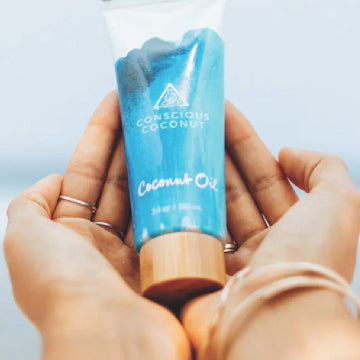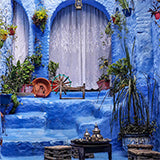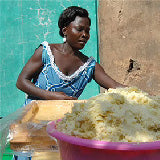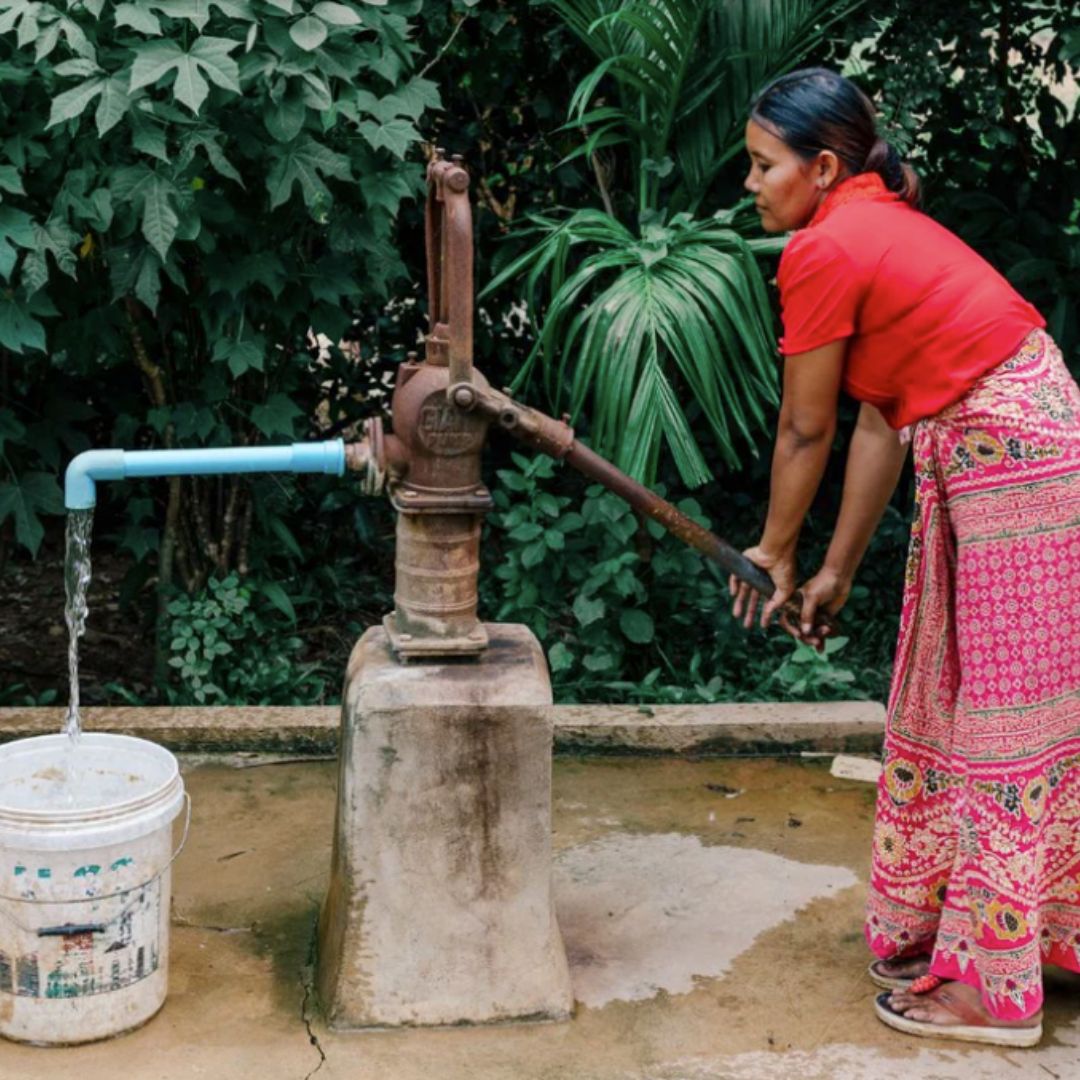Travel the Globe on a Fair Trade Shopping Excursion
One of my favorite activities when traveling is shopping at all the amazing markets and bazaars. There’s nothing better than bringing home handicrafts and regional goods from a trip to cherish and remind me of my escapades abroad.
 A Vendor in Udaipur posing for me
A Vendor in Udaipur posing for me
While traveling to the far off reaches of the globe isn’t happening anytime soon, there is a next best option…fair trade shopping. Exotic, sure, but more importantly, when you purchase fair trade-certified goods, you’re making a conscious choice to create a better world.
Just because October is Fair Trade Month, don’t think of fair trade shopping as a short-term charity, but more of a long-term transparent supply chain system that works to connect people along the entire trade route - from farmers and artisans – to customers like you and me. For a product to receive a fair trade certification, it requires rigorous evaluations by third-party auditors that track transactions along the supply chain between more than 1,200 companies and nearly 500 producer organizations. There are several organizations that do this including Fair Trade Certified, Fairtrade International, World Fair Trade Organization, Fair Trade Federation, and Fair for Life.
 Image from @fairtradewinds
Image from @fairtradewinds
While the origin of fair trade is a little all over the place, the first roots date back to the mid-1940s when an American businesswoman named Edna Ruth Byler sold needlework items made from a Puerto Rican women’s sewing group to friends in the U.S. That company is now Ten Thousand Villages (read more about this organization below).

Why is it important to shop fair trade?
Helps Reduce Global Poverty
Within the fair-trade movement, there is something called the “Fair Trade Minimum,” which guarantees a producer a safety net of a ‘minimum price’ for the products they sell if the market price decreases. This allows the small, poor worker of a developing country to compete and thrive in the global marketplace.
It’s Better for the Environment
Fair trade manufacturing methods encourage environmentally friendly production methods. Most products to come out of fair trade such as coffee, cocoa, various oils of coconut, olive and brazil nuts use limited pesticides, fertilizers, and steer clear of genetically engineered ingredients. Fair trade farmers incorporate proper management of water and energy. Also, many handicraft products are made from recycled, upcycled or sustainable materials.

Protects the Workers
When products are certified fair trade, it puts the global supply chain on a transparent stage and makes it accountable for the way it treats its workforce. This includes stronger requirements of employers to provide quality on-site housing for workers, making sure they have contracts with proper leave and overtime and that they have the right health and safety equipment for their work.
Zero Tolerance of Child Labor
Children under 18 years old are banned from work that endangers them or their schooling. Children under 15 are not to be employed by fair trade organizations at all.
Gender Equality
Approximately 60-80% of the world’s food is grown by women, but only 25% of the farmers involved in fair trade are women. Organizations like Fairtrade International have put guidelines in place to increase women’s roles and ensure they receive equal benefits.
There are more than 70 countries around the world that deal in fair trade, most of them located in South America, Africa and South Asia.
Where can you go on a virtual shopping tour while supporting this global movement?
The following list is just a small fraction of the fair trade shopping sites and brands that I love. Consider this list a living document that I will continue to update. If you happen to have a favorite fair trade brand that’s not listed, please share it with me here!

Created to make it quick, easy and affordable to use your purchasing power for good, DoneGood scours the planet to find the brands that make the world better and pools them all together under one shopping umbrella. Best selling items include 100% organic non-toxic bamboo sheets from Ettitude, huarache sandals from Nisolo and Wild Superfood Beauty Butter from Teadora.

Ten Thousand Villages has been breaking the cycle of generational poverty and igniting social change since 1946. They've mastered the way for people to shop with intention for ethically-sourced wares — and to share in the joy of empowering makers in ten thousand villages. With stores around the country and a robust online shop, you can scout everything from handmade ponchos from Ecuador, menorahs from India, and wood carved giraffe snack bowls from Kenya.

Since 2012, The Little Market has been offering up their collection of fair trade goods made by artisans in need, including refugees, people with disabilities, women transitioning out of homelessness, and survivors of trafficking and domestic violence. Each purchase helps artisans build a brighter future for themselves and their families. Gorgeous colorful textiles from Bangladesh and beaded leather goods from Haiti can be yours without ever boarding a plane.

Since 2010, Noonday has been designing and selling an inspired collection of jewelry and accessories made by Artisans across the globe. To date, they've placed $26 million in orders with their Artisan Business Partners, supporting dignified jobs for Artisans around the world. You can purchase directly on the Noonday website or directly from a Noonday Ambassador. Visit here to find one in your area or learn about becoming one yourself.

Thanks to a successful visit on the TV show Shark Tank, this once small sandal company that began as a way for young women in Uganda to generate income for university, now currently employs 61 women. Sseko has also fully funded 25 university-bound scholarships and created 600 flexible income positions. Sandals aren't the only thing you'll find these artisans making now. Chiffon skirts, leather totes, jewelry and even coffee are now part of their offerings.
The next time you feel like doing a little retail therapy, think about checking out the sites above to make a true impact. Fair trade is one of the most ethical and beautiful ways to do business. Our world is getting smaller every day and each action you make has a ripple effect. Make your ripple a good one.














